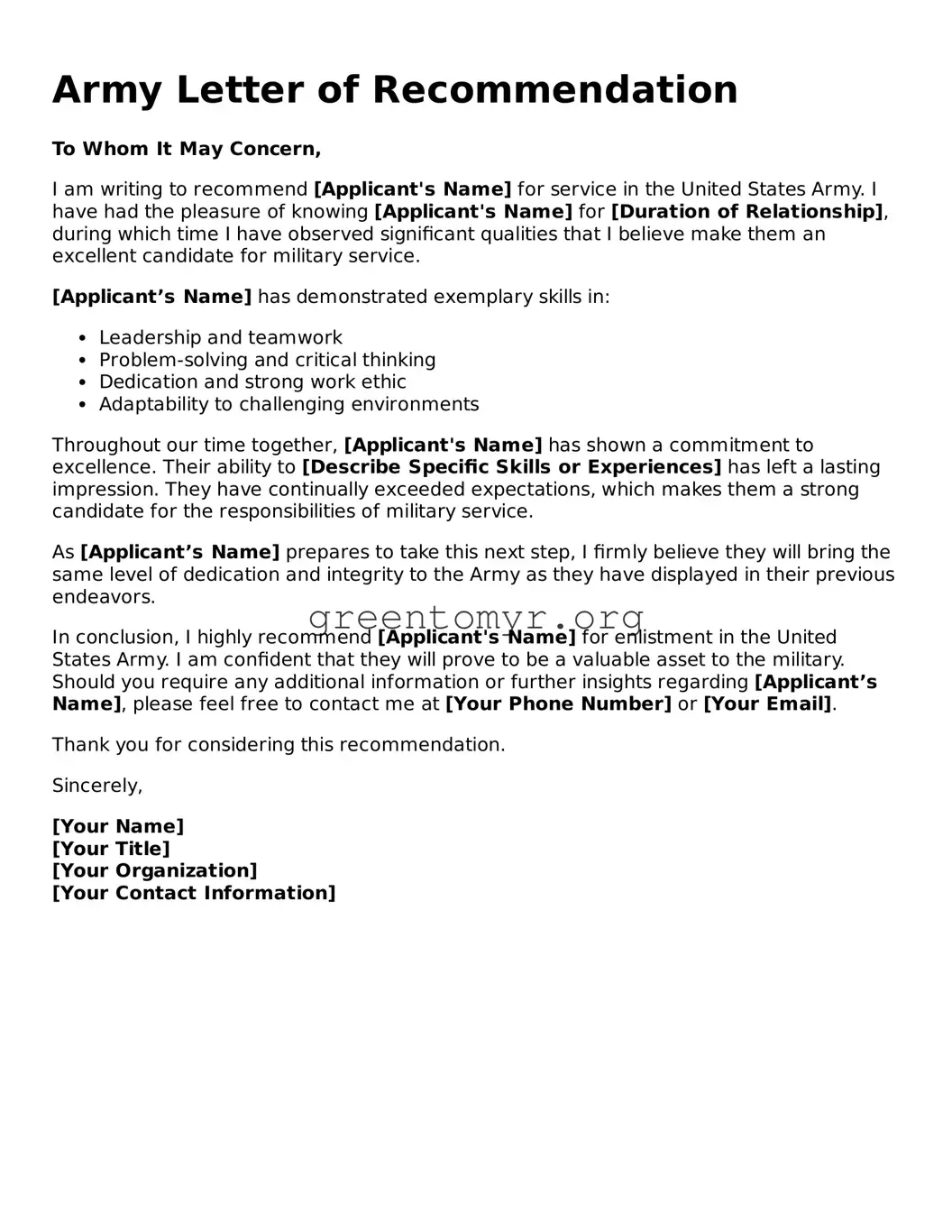Army Letter of Recommendation
To Whom It May Concern,
I am writing to recommend [Applicant's Name] for service in the United States Army. I have had the pleasure of knowing [Applicant's Name] for [Duration of Relationship], during which time I have observed significant qualities that I believe make them an excellent candidate for military service.
[Applicant’s Name] has demonstrated exemplary skills in:
- Leadership and teamwork
- Problem-solving and critical thinking
- Dedication and strong work ethic
- Adaptability to challenging environments
Throughout our time together, [Applicant's Name] has shown a commitment to excellence. Their ability to [Describe Specific Skills or Experiences] has left a lasting impression. They have continually exceeded expectations, which makes them a strong candidate for the responsibilities of military service.
As [Applicant’s Name] prepares to take this next step, I firmly believe they will bring the same level of dedication and integrity to the Army as they have displayed in their previous endeavors.
In conclusion, I highly recommend [Applicant's Name] for enlistment in the United States Army. I am confident that they will prove to be a valuable asset to the military. Should you require any additional information or further insights regarding [Applicant’s Name], please feel free to contact me at [Your Phone Number] or [Your Email].
Thank you for considering this recommendation.
Sincerely,
[Your Name]
[Your Title]
[Your Organization]
[Your Contact Information]
